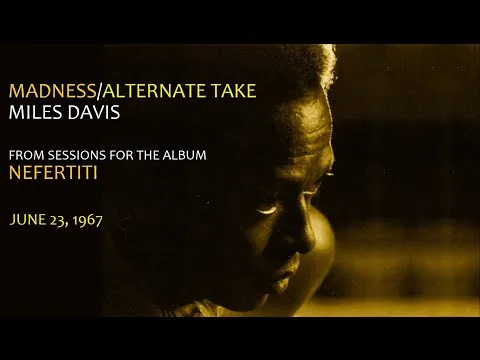Wayne Shorter (tenor sax), Miles Davis (trumpet), Herbie Hancock (piano), Ron Carter (bass) and Tony Williams (drums). From the album Nefertiti (1968).
Until the end of the 19th century, madness was considered to be a set of group or individual behaviors characterized by a mental imbalance that caused sickly delusions and inappropriate for the normal functioning of reason. It can manifested itself as a rejection of established social norms, including the performance of strange and harmful accions for oneself and others. The symptoms of certain illnesses such as epilepsy were also considered as madness. Nowadays, in medical terms, diagnoses of specific psychiatric diseases are used.

For example, a mental imbalance that manifests itself in a distorted perception of reality, loss of self-control, hallucinations and absurd behaviors is known as psychosis. Madness is also related to dementia, which is the absence or loss of cognitive functions preventing the concretion of daily activities. Another example would be the degenerative Alzheimer’s disease, which progressively destroys the brain and deprives us of our memory.

The theme is very short and strange, with Shorter and Davis playing in unison. Carter introduces the walking and Davis begins his solo without hurry, but without pause, giving himself time for the phrases to flow. Hancock remains silent, letting Davis to express himself freely. Then Shorter enters with a somewhat mysterious speech, separating the sentences as pages that follow one another in a book. Soon Hancock arrives playing a determined and courageous melodic line maintaining tension and drive. To end, Shorter and Davis re-expose the theme with Shorter making an ostinato of chords.
© Columbia Records

